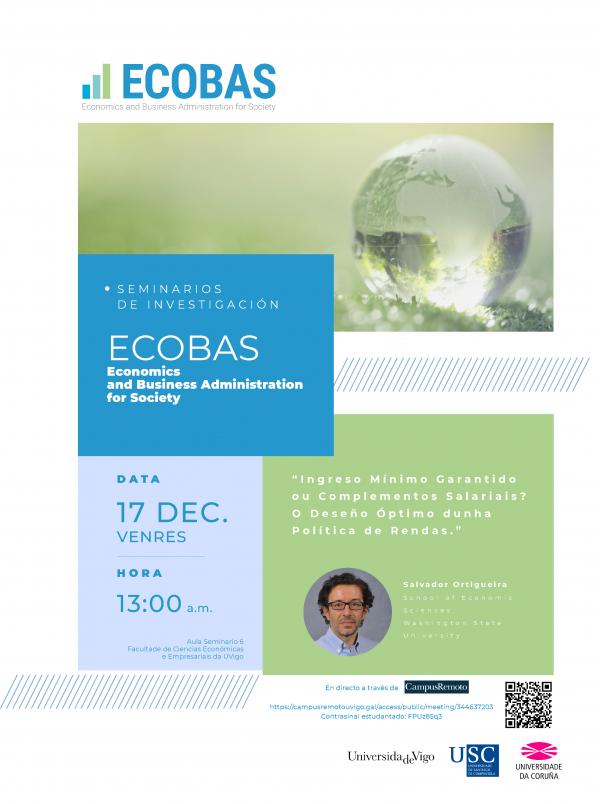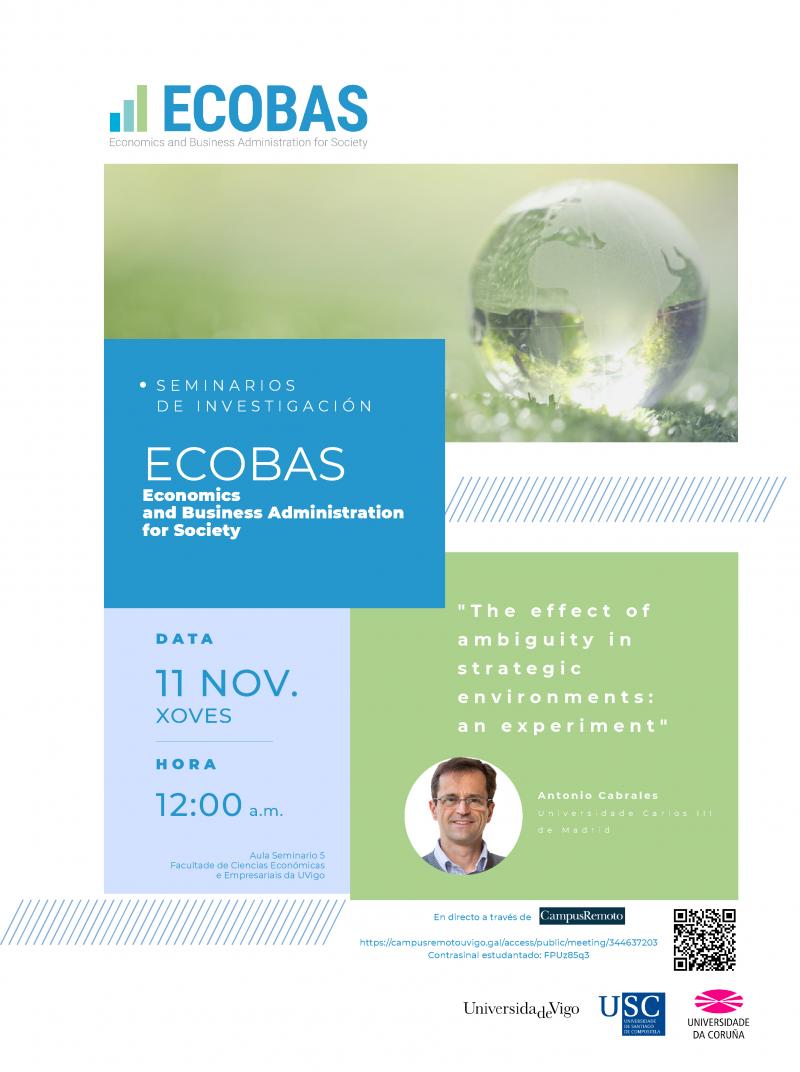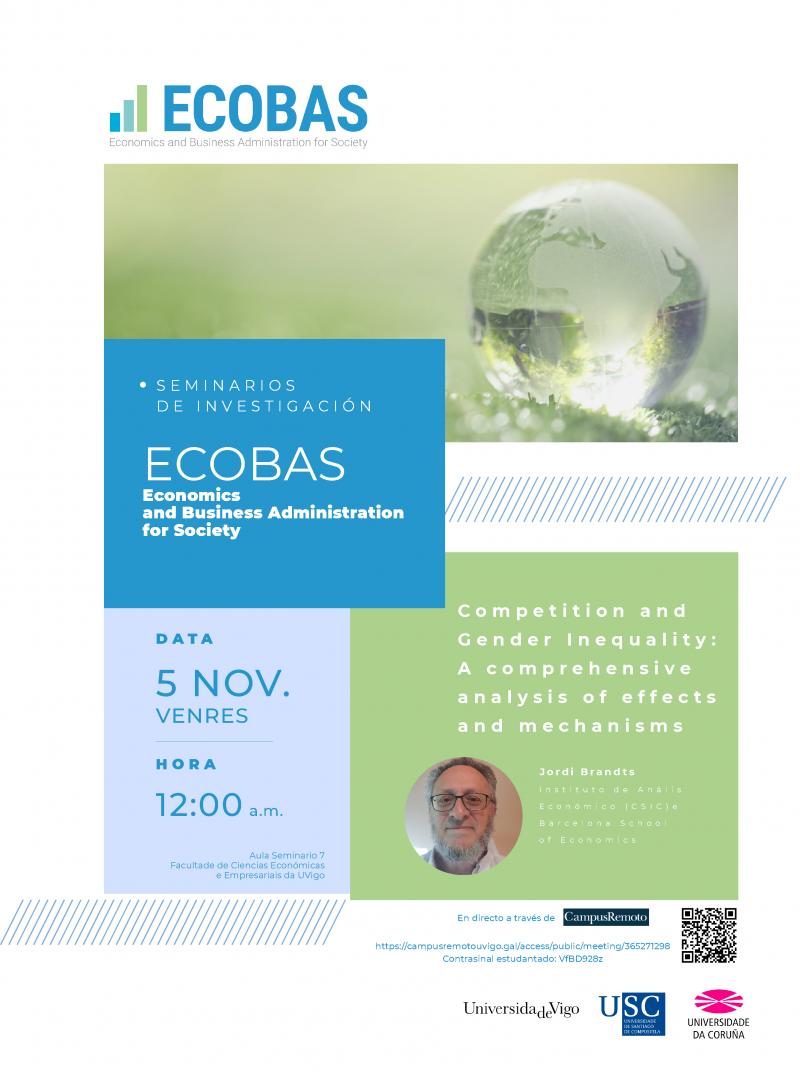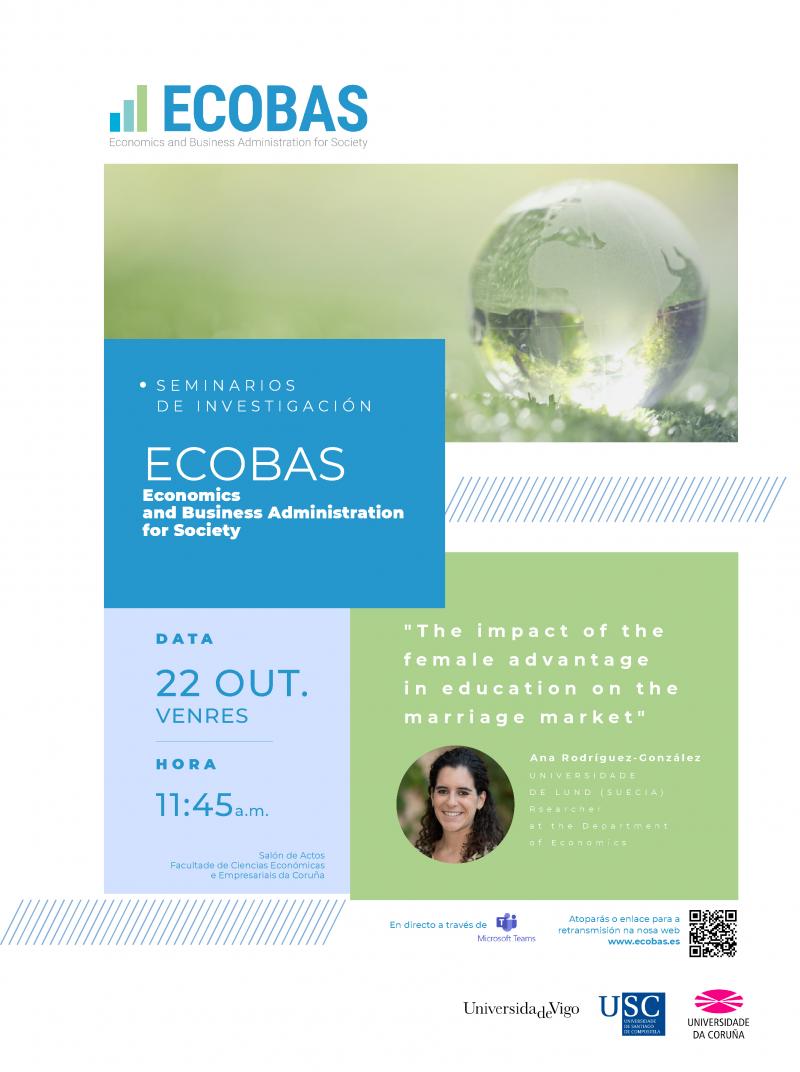Seminario de Investigación ECOBAS: Tiago Tavares – ITAM (México)
RESUMO:
Using new census-type data and a dynamic structural model, we study the effect of credit supply on investment by manufacturing firms during the Greek depression. Real factors (profitability, uncertainty, and taxes) account for only a fraction of the substantial drop in investment observed in the data. The reduction in credit supply has significant real effects, explaining 11–32% of the investment slump. We also find that exporting firms, which reduce investment and deleverage despite their improved profitability during the crisis, face a contraction in credit supply similar to that of non-exporters, suggesting that the credit-supply shock has a significant common component.
Máis información sobre o relator
Seminario de Investigación ECOBAS: André Seidel - Universidade de Bergen (Noruega)
How much do we know about firm activities around the world? To understand global firm networks and how they operate, we need consistent information about their activities that is not biased by firm reporting choices. In this paper, we collect a novel dataset on factory land consumption and the light these factories produce at night for a large sample of car manufacturing plants to provide such data. We show that we can measure firm activity with this data, using annual firm financial data and high-frequency data related to COVID-19 pandemic production shocks. We use this data to quantify the extent of unreported and misallocated global turnover and show the asset allocation across subsidiaries of multinational firms (MNCs) that is not biased by profit shifting.
Seminario de investigación ECOBAS: Jordi Brandts - CSIC & Barcelona School Of Economics
This study provides a comprehensive analysis of gender differences in performance caused by two different dimensions of competition –rivalry for resources and status ranking. It also examines two mechanisms behind such differences: (1) gendered beliefs about performance differences in competitiveness; and (2) prescriptive stereotypes about women having to show warmth towards others. The results indicate that in the absence of any competitive dimension men and women perform equally well. Any competitive dimension, however, leads to women doing worse than men. These results are explained by men’s beliefs that they are better than women, and by women’s adherence to a prescribed stereotype of not harming others. Gender differences under competition seem to be endogenous to situational contexts, just like they are without competition.
Documentación asociada:
Seminario de investigación ECOBAS: Jorge Higinio Maldonado - Universidad de Los Andes
Las comunidades asociadas a la pesca artesanal, en los países en desarrollo, típicamente exhiben altos niveles de pobreza y vulnerabilidad, así como una marcada dependencia en los recursos pesqueros. La pesca juega un papel clave como fuente de ingreso y de seguridad alimentaria. Sin embargo, típicamente no hay suficiente información sobre estas relaciones y sus dinámicas. Este estudio contribuye a la comprensión de los medios de vida de comunidades de pesca artesanal y a la identificación de cómo algunos parámetros económicos clave afectan las decisiones de los hogares. Acá desarrollamos un modelo de producción de hogares pescadores, donde las decisiones de consumo y de producción no son separables y donde se considera que la pesca es un recurso de uso común. El modelo teórico se valida con información de Barú, en el Caribe Colombiano. Con el modelo calibrado se hacen simulaciones de los efectos de corto y largo plazo de diferentes políticas sobre la gestión de las pesquerías y el bienestar de los hogares. Los hallazgos proveen información para el diseño de políticas que promuevan el desarrollo económico de estas comunidades mientras se usa de manera sostenible sus recursos.
Documentación asociada:









